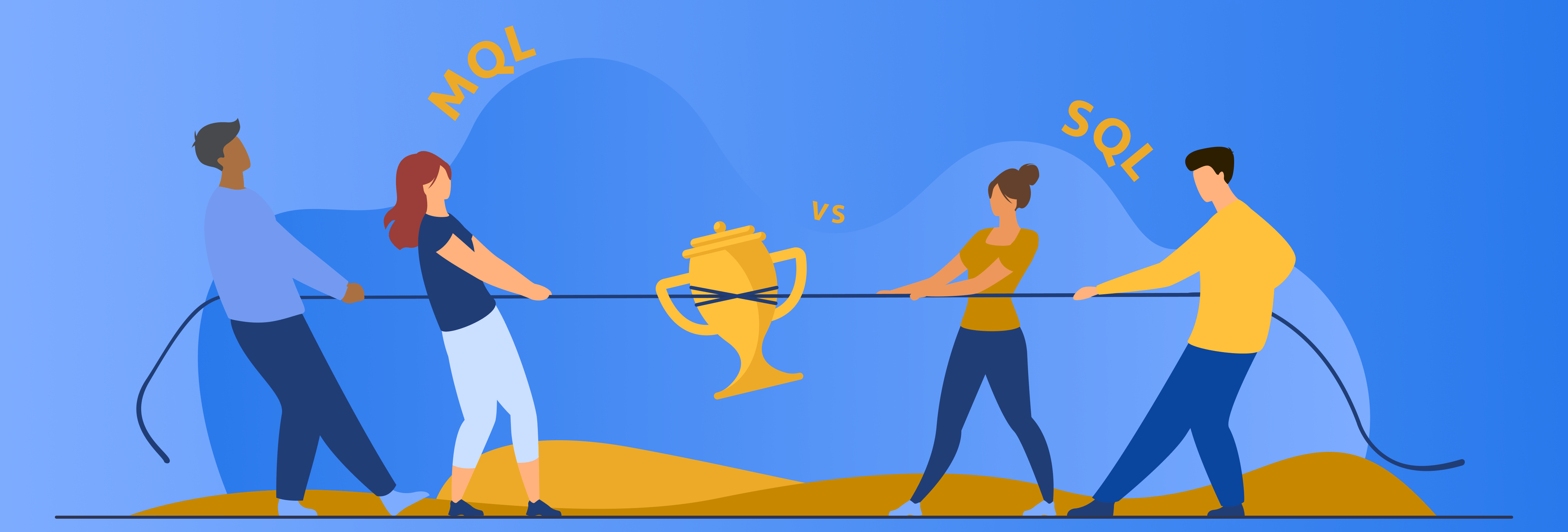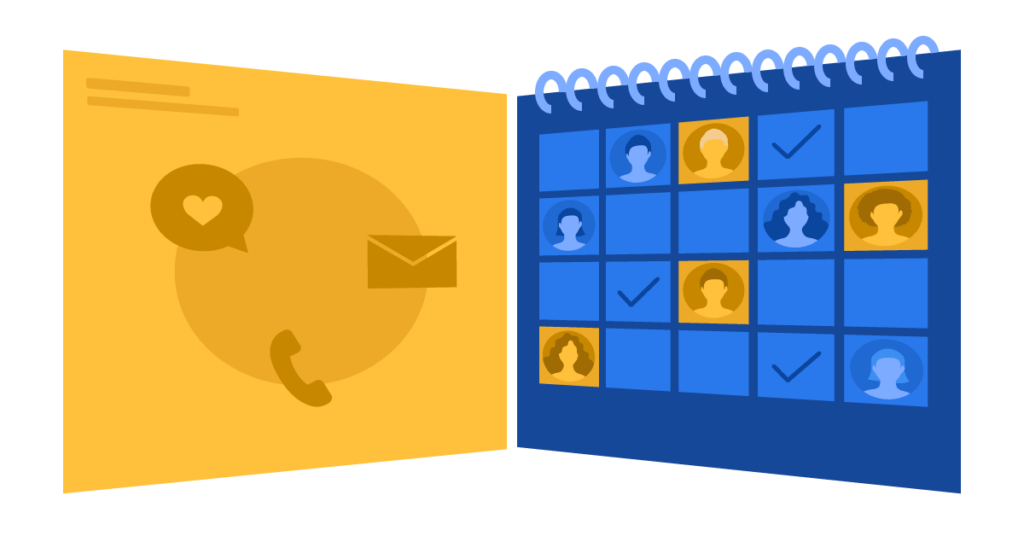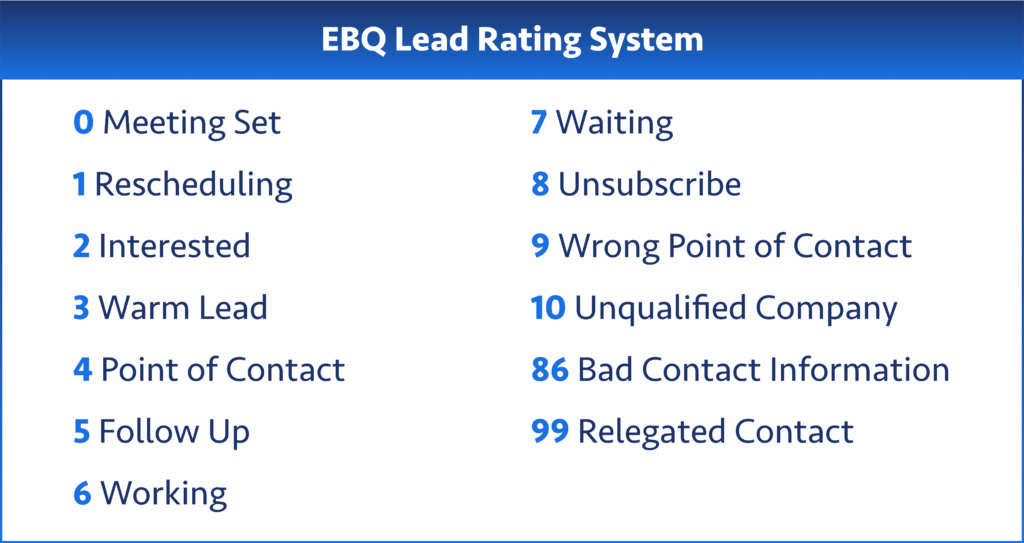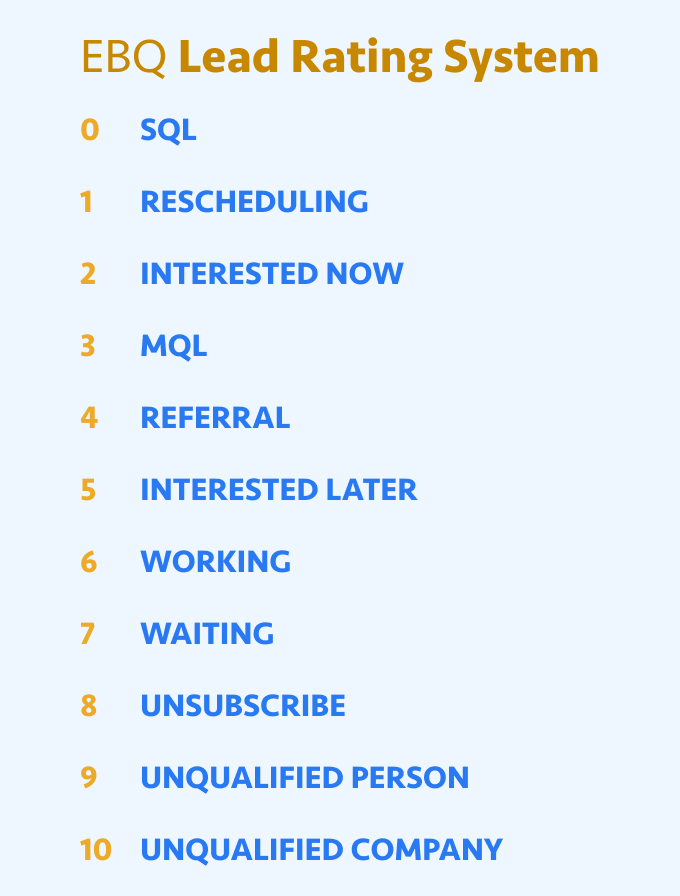MQL vs SQL: What’s the Difference and Why It Matters for Your Sales Funnel


Ben Darling
For any growing business, driving revenue is more than just adding leads to your sales funnel. You have to intentionally nurture high-quality prospects to maximize opportunities. That is where understanding the difference between marketing-qualified leads (MQLs) and sales-qualified leads (SQLs) comes into play — learning the distinction between the two and how to optimize the handoff process can significantly impact pipeline health and revenue growth.
| MQL | SQL | |
|---|---|---|
| Definition | A prospect who has shown interest in purchasing your product or service | A prospect who has shown high intent in purchasing your product or service |
| Stage in the Buyer’s Journey | Awareness and Consideration | Consideration |
| Teams Responsible | Marketing and business development teams | Business development and sales teams |
| Typical Prospect Actions |
|
|
| Typical Prospect Thinking | “I have a problem, so I want to see if your solution can address it.” | “I’m very interested in purchasing. Let’s talk and negotiate a deal.” |
| MQL | SQL | |
|---|---|---|
| Definition | A prospect who has shown interest in purchasing your product or service | A prospect who has shown high intent in purchasing your product or service |
| Stage in the Buyer’s Journey | Awareness and Consideration | Consideration |
| Teams Responsible | Marketing and business development teams | Business development and sales teams |
| Typical Prospect Actions |
|
|
| Typical Prospect Thinking | “I have a problem, so I want to see if your solution can address it.” | “I’m very interested in purchasing. Let’s talk and negotiate a deal.” |

Download the Ultimate B2B Appointment Setting Guide
Download the B2B Appointment Setting Guide to learn how to properly prospect and cold-call best practices.
What is a marketing-qualified lead?
A marketing-qualified lead (MQL) is a prospect who has shown interest in purchasing your product or service. They are typically in the Awareness stage of the buyer’s journey and are migrating towards the Consideration stage.
So, how do you know if they are an MQL? A few typical actions we see them take are:
- Filling out a contact form
- Calling in to request a demo
- Asking for pricing
Think of MQLs as people raising their hands; they are intrigued by your offering, but they still want to learn more about you before they commit to starting the buying process.
What is a sales-qualified lead?
A sales-qualified lead (SQL) is a prospect who has high intent to purchase your product or service. At this point, they are in the Consideration stage of the buyer’s journey.
An SQL will typically:
- Agree to a sales meeting over the phone
- Starting a free trial
- Requesting a proposal
In other words, SQLs are saying, “Hey! I’m ready to buy. Let’s talk about how and when we can make this happen”.

Subscribe to EBQ's Bimonthly Newsletter

Subscribe to EBQ's Bimonthly Newsletter
What should my MQL to SQL conversion rate be?
As a general benchmark, your MQL-to-SQL conversion rate should be 10%. While this may sound low, keep in mind that MQLs are merely interested in your product and are often not ready to buy yet.
A few more success metrics you can look into are:
- Win rate: The percentage of deals your team closes out of the total number of opportunities.
- Connect rate: How often outreach attempts result in real conversations with prospects.
- Meeting completion rate: The number of scheduled meetings that are completed.
Key strategies to improve MQL to SQL conversions
A high MQL-to-SQL conversion rate indicates that you have a well-targeted marketing strategy, a strong qualification process, and highly aligned cross-functional teams.
So how do you maximize opportunities? Here are five tips on how to boost your MQL to SQL conversions:
1. Unify customer data
Fragmented customer data is not just annoying for your revenue-driving teams; it can cause you to miss out on key insights that inform your lead conversion strategies.
Unifying data in a CRM like Salesforce enables your entire organization to get a comprehensive view of each prospect’s unique journey. By tracking each touchpoint, lead source, and sales conversation, you can identify overarching patterns to develop data-informed strategies for your overall lead generation.
EBQ Tip: Once you invest in a CRM, we highly recommend investing in a certified CRM implementation partner, such as EBQ. You can rely on our experts for guidance through complex setup processes, including data migration, custom field and object setup, and reporting configurations.
2. Lead qualification rules
Not every lead who downloads a guide is ready for a sales call. By defining clear qualification criteria, you prevent unqualified leads from being passed to sales development reps (SDRs) prematurely. That way, your SDRs can focus on nurturing highly qualified leads as your marketing team warms up colder leads.
At EBQ, we use the EBQ Lead Rating System to objectively score leads based on their levels of interest; the closer they are to 0, the closer they are to being ready for a sales call. From there, our SDRs adjust their call cadence and messaging talk tracks based on their scores to maximize conversion opportunities.


3. Lead nurturing program
A lead nurturing program is a strategic approach to building relationships with leads over time to convert them to paying customers down the line. Similar to how our SDRs adjust their talk tracks based on the lead’s score, our marketing team also adjusts their lead nurturing programs to slowly warm up the leads without adding too much friction.
One of the most effective ways to nurture leads is through email marketing. It enables audience segmentation, personalized content, and the scheduling of messages to reach prospects at the right time. Consistent, relevant touchpoints help accelerate the buyer’s journey — thus improving overall conversion rate.
4. Lead the handover process
A common breakdown happens when leads move from marketing to sales. Without a structured handover process, leads can easily slip through the cracks — leading to loss of revenue and rise in frustration.
To ensure sales can seamlessly pick up where marketing left off, be sure to document your processes in an easily shareable knowledge base article. This documentation should include communication guidelines, expectations on workflow, and even a defined role scope.

Download the Ultimate B2B Appointment Setting Guide
Learn what it takes to identify prospects, get in touch with decision-makers, and set more meetings for your sales reps.
5. React quickly to high-intent prospects
Timing often determines whether a deal is won or lost. When a prospect takes a high-intent action—such as requesting a demo or pricing information—sales should respond within minutes, not hours. Setting up automated alerts and routing ensures these opportunities receive immediate attention.
Speed is key when handling leads that show strong buying signals. Quickly responding to high-intent MQL signals shows professionalism and improves chances of engagement. Use real-time alerts, dynamic lead scoring, and dedicated resources to prioritize and accelerate outreach to these promising prospects.
Did you know that 30-50% of buyers go with the vendor that responds first? Timing often determines whether a deal is won or lost. When a prospect takes a high-intent action, your BDRs should respond within minutes — not hours.
To make sure all your leads get worked on, you need a sales development team. While your SDRs are responsible for performing cold outbound calls, they are also responsible for warm calling. This means SDRs not only introduce your company to new prospects but also re-engage leads who have already shown interest, keeping the pipeline active and moving forward.
Maximize your SQL conversions
Driving revenue growth is more than just funneling anyone and everyone into your pipeline; it is about intentional lead nurturing to ensure you are optimizing your MQL-to-SQL conversions.
And if you need help on how to smooth out your MQL to SQL handover process, consider partnering with EBQ’s SDRs. They understand how to follow up with your hard-earned marketing leads in a professional yet persistent manner. This ensures that no qualified opportunity slips through the cracks, improving both conversion rates and pipeline efficiency.
About the Author:
Ben is a Business Consultant at EBQ with over 13 years of experience in Demand Generation. He has played an active role in hundreds of projects consulting companies across different industries, maturities, and tech stacks to increase brand visibility.
